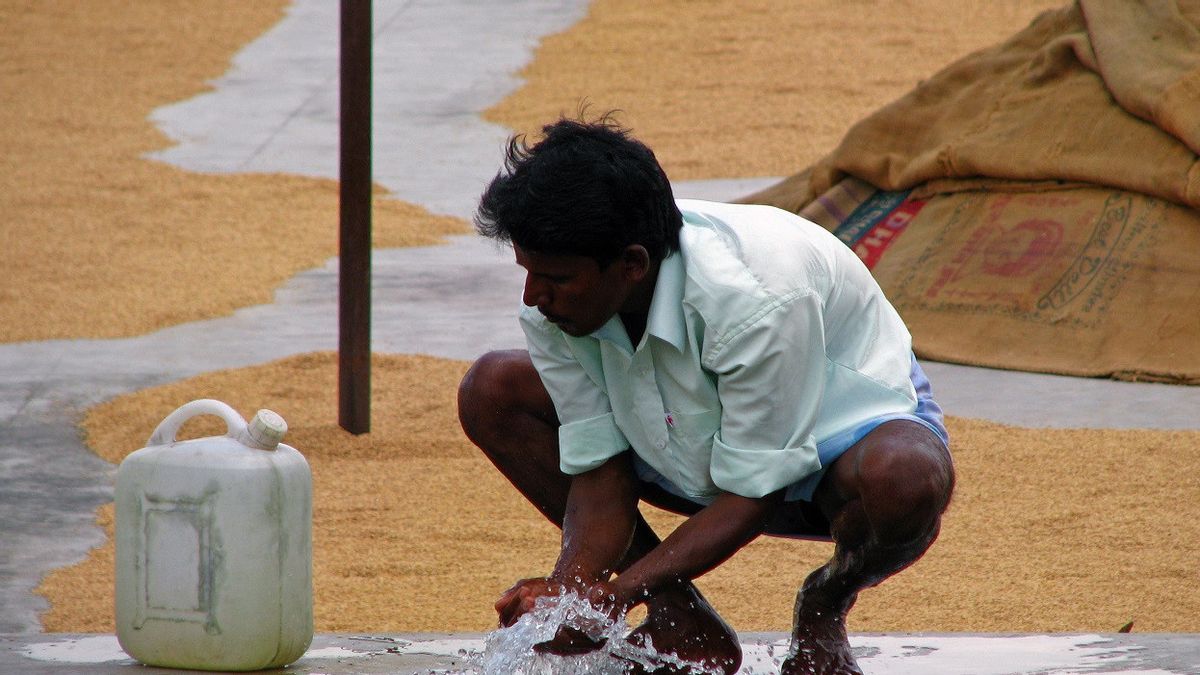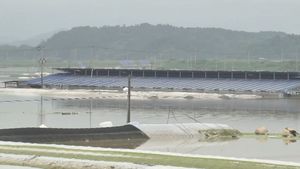JAKARTA - India on Thursday ordered a halt to its biggest export category of rice in a move that will roughly halve shipments by the world's biggest grain exporter, stoking fears of further inflation in global food markets.
The government said it would impose a ban on non-basmati white rice, after retail rice prices rose 3 percent in the month following a delay while heavy rains caused significant damage to crops.
India accounts for more than 40 percent of world rice exports. Cuts in deliveries could increase food prices which have been boosted by Russia's invasion of Ukraine last year, as well as the erratic weather.
"To ensure adequate availability of non-basmati white rice in the Indian market and to mollify rising prices in the domestic market, the Government of India has changed its export policy," the Ministry of Food said in a statement citing an 11.5 percent rise in retail prices over 12 months, reported Reuters on July 21.
The categories affected, namely non-basmati white rice and brown rice, accounted for around 10 million tonnes of India's total 22 million tonnes of rice exports last year.
The government clarified late on Thursday that parboiled rice, which represents 7.4 million tonnes of exports in 2022, was not included in the ban.
This move demonstrates the sensitivity of the Government of Prime Minister Narendra Modi to food inflation ahead of the general elections to be held next year.
Previously, his government had extended a ban on wheat exports after limiting rice shipments in September 2022. India has also limited sugar exports this year as sugarcane yields fell.
"India will disrupt the global rice market at a much greater pace than Ukraine did in the wheat market with the Russian invasion," said Rice Exporters Association President B.V. Krishna Rao told Reuters.
Rice is a staple food for more than 3 billion people, and nearly 90 percent of this water-intensive crop is produced in Asia, where El Niño weather patterns typically bring less rainfall.
"The sudden export ban will be very painful for buyers, who cannot replace shipments from other countries," said Rao.
While Thailand and Vietnam do not have sufficient stocks to cover the shortfall, African buyers will be greatly affected by India's decision, Rao said, adding that many countries will press New Delhi to resume deliveries.
It is known that a number of countries which are the main buyers of Indian rice are Benin, Senegal, Ivory Coast, Togo, Guinea, Bangladesh, and Nepal.
SEE ALSO:
This ban will be effective from July 20, but ships that are in the process of loading are still allowed to export.
It is understood heavy rains in northern India over the past few weeks have damaged newly planted crops in several states including Punjab and Haryana, leaving many farmers having to replant.
In another major rice-producing state, farmers have set up rice nurseries, but are unable to transplant seedlings due to insufficient rainfall.
The English, Chinese, Japanese, Arabic, and French versions are automatically generated by the AI. So there may still be inaccuracies in translating, please always see Indonesian as our main language. (system supported by DigitalSiber.id)


















